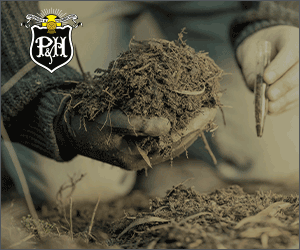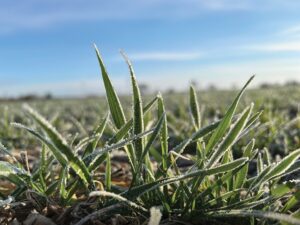Research roundup
FIND OUT WHAT’S NEW IN THE WORLD OF RESEARCH
Herbicide choices affect replant corn
Andrea Seccafien
Identifying safe herbicides for corn producers can help reduce crop injury and stand loss in replanted corn. Plant Agriculture Professor Peter Sikkema at the University of Guelph Ridgetown Campus is studying levels of herbicide injury from various products.
So far, he has found that the herbicide Venture has some residual activity in the soil, meaning corn planted shortly after application is at risk of injury and stand loss. He also found that Assure, Poast, Select and Excel do not cause injury after application on replant corn.
“Ontario producers commonly question which product to use when burning off and replanting corn,” says Sikkema, “Now we can confidently say which products are safe for farmers’ crops.”
In an additional study, Sikkema has demonstrated the effectiveness of herbicide safeners which reduce the effect of the herbicide on corn. He has found that the safener in Converge Flex, cyprosulfamide, increases the margin of crop safety in corn by increasing the metabolism of the herbicide in the corn plant. •
Breeding toxin resistance into corn
Katharine Tuerke
A breeding method originally used in canola has been adapted to arm corn with resistance to the toxic Fusarium fungus. Professor Laima Kott, from the Department of Plant Agriculture at the University of Guelph, developed the technique in the 1980s for canola breeding, called microspore culture.
This new corn breeding tool uses ultra violet light technology to create inbred lines, speeding up the production of disease-resistant corn plants.
“We’ve used this technique with canola for decades, but corn is much more difficult and complicated to work with, so it’s exciting to have created successful resistant plants,” says Kott.
Funding for this project was provided by Grain Farmers of Ontario. •
Rotate to thwart corn rootworm resistance
Sarah Hollywood
Corn rootworm larvae can devastate roots of corn and cause significant yield loss. Bt corn, expressing insecticidal Bt toxins, has been widely adopted to control this pest. In some areas of the US, western corn rootworm has developed resistance to these toxins in as little as three years.
In Ontario, University of Guelph Professor Art Schaafsma and graduate student Andrea Hitchon are working with the Canadian Corn Pest Coalition to detect and mitigate cases of rootworm resistance. So far, they have found there is no confirmed resistance to Bt toxins. Judicious, sustainable use of these toxins by growers will help ensure this continues to be the case.
To help prolong the effectiveness of Bt toxins, Schaafsma and Hitchon are encouraging crop rotation. Rotation has proven to be the single most effective tool against corn rootworm. Without corn roots, rootworm larvae will starve and populations in rotated fields will be wiped out.
Funding for the research is provided by the Ontario Ministry of Agriculture and Food and Ministry of Rural Affairs – University of Guelph Partnership: HPQ Scholarship, DuPont Pioneer, Monsanto, Syngenta and Dow AgroSciences. •
Research Roundup is provided by members of SPARK (Students Promoting Awareness of Research Knowledge) at the University of Guelph’s Office of Research. For more information, contact a SPARK writer at 519-824-4120, ext. 52667.
























